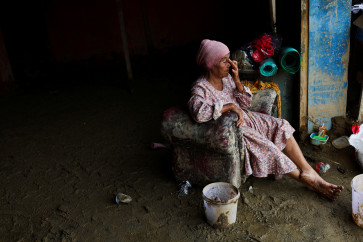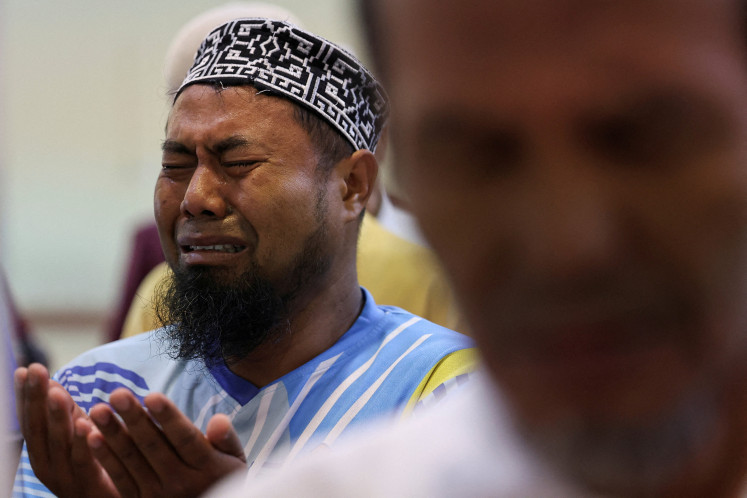Popular Reads
Top Results
Can't find what you're looking for?
View all search resultsPopular Reads
Top Results
Can't find what you're looking for?
View all search resultsAgency, mayor differ on Bandung targets
Change text size
Gift Premium Articles
to Anyone
T
he mayor of Bandung, Ridwan Kamil, and the city’s development planning agency are embroiled in an argument after Ridwan criticized the agency for setting unrealistic targets in its plan. For example, the agency has listed in its plan an ambition to create 100,000 new entrepreneurs and to free the city from floods within five years.
Emil, as Ridwan is known, said the agency did not involve him or the deputy mayor in the decision-making process for the 2013-2018 medium-term development plan (RPJMD).
An RPJMD is a legal reference point and political promise prepared by regional heads as a basis for a city’s development.
“In its development, the RPJMD process did not actively involve the mayor and deputy mayor. All of a sudden, the final draft was handed out,” Emil told a focus group discussion (FGD) on the revision of the 2013-2018 development plan in Bandung, West Java, on Thursday.
Because he was not involved in the process, he said many of his ideas, and his general vision for the city, could not be found in the plan. Emil outlined his vision for the city during his mayoral campaign.
The mayor, who is entering into his third year in office, also asked the FGD participants to provide input for the revision of the city’s RPJMD, particularly those parts that contain development targets that are too high or unrealistic.
One of the points Emil criticized was the ambition to create 100,000 new entrepreneurs in Bandung. The West Java provincial administration has also set the same target for all 27 regencies and cities.
“Who is being unrealistic, Bandung or West Java? My feeling is it’s us,” Emil said.
Moreover, he also asked that the target of completely liberating Bandung from floods and traffic congestion be changed into significant reductions in floods and traffic congestion.
“Free of congestion and free of floods are promises that are too grandiose. In the process, the team did not discuss it thoroughly. It’s our homework to revise and improve the RPJMD,” said Emil.
Responding to the criticism, agency head Kamalia Purbani said her office was ready to make revisions.
Previously, Donny Setiawan, the city’s RPJMD observer forum (FPR) coordinator, said many of the development targets in the RPJMD were unrealistic. He blamed it on data that he saw as not in accordance with official sources.
Providing an example, Donny said the human development index (IPM) was set at 82.02 by 2018. In fact, as of 2012, Bandung’s IPM, according to 2013 macro economic data issued by the Central Statistics Agency (BPS), was 76.86.
Considering that the IPM growth trend from 2010-2012 was never above 0.5 points, Donny said, it will be difficult to have an IPM of 82.02 by 2018.
On the other hand, some development indicators stipulated in the RPJMD are too low compared to the targets set for the education index and for fertility figures.
Emil also recognized the use of inaccurate data in the RPJMD, arguing that the data on the number of economically poor people in Bandung had not changed from 2013.
“The data at the social affairs agency and at the city development planning agency are all different. But the data on the recipients of rice for the poor remains 60,000, meaning that poverty never decreases,” he said.
He urged his staffers to reconsider the development programs, starting from the policy on employers with capital of less than Rp 500 million not getting licenses but only letters of notification.
“With this policy we have 30,000 new businesses,” Emil said.
He said they had loans without collateral, in which every loan was distributed to groups with five members. It turns out that the bad debt is zero, he said.
“There are 10,000 who have accessed it, of which some 3,000 were previously trapped by moneylenders,” Emil said.










